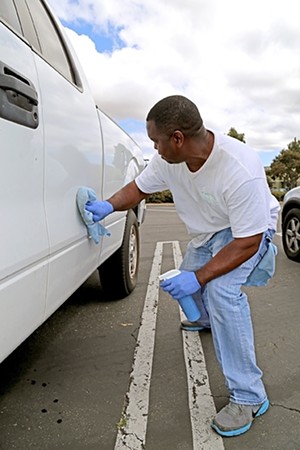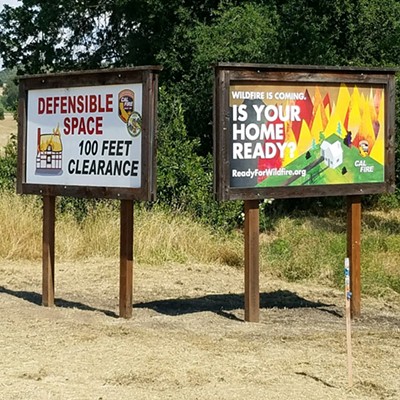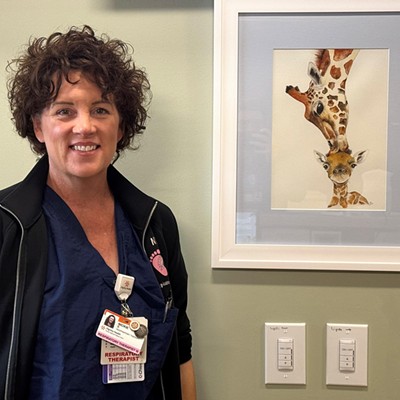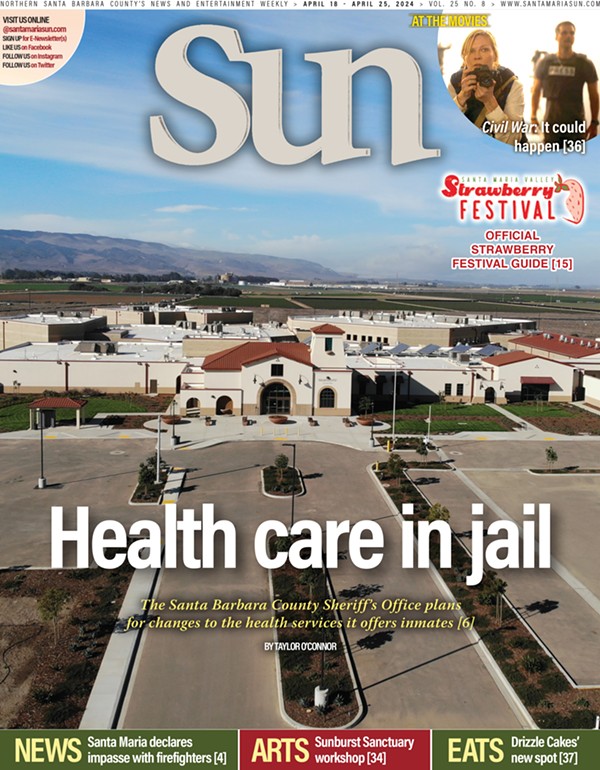After catalyzing community protests and lengthy discussion among elected officials, a Santa Maria ordinance that will regulate mobile car washers narrowly passed at a recent City Council meeting.
As council members listened to public comment and discussed the ordinance on April 6, the sound of protesters was audible over the meeting’s livestream. Two weeks earlier, on March 23, mobile car washers and their families took to the streets in protest after the council voted 4-1 on March 16 in favor of continuing the ordinance to a second reading.
Many mobile car wash owners submitted written and oral public comments about how the ordinance would impact their livelihoods. The city provided live translation for Spanish-speaking commenters.

“Me and my colleagues don’t have anything against the City Council: We just ask that your rules aren’t as strict,” said one car wash owner named Miguel, whose comment was translated. “I lost my job because of the pandemic, so I started doing the mobile car wash, and this is what I use to generate income. It’s what I depend on.”
The ordinance will require that mobile car washers maintain proper equipment setups to contain and dispose of water; that they no longer operate on public property and must be mobile, meaning they must go to their customers’ homes to conduct their services; and that the operations be inspected every two years. They will also have to obtain business permits.
“The city wants to help mobile commercial car washes to prosper, with reasonable regulations for safety, fairness, and to protect the environment from uncontained wastewater discharged onto the street,” city Public Information Manager Mark van de Kamp said in a statement after the March 23 protest. “The city is not trying to put anybody out of business.”
The issue first came before the council last summer, City Attorney Thomas Watson said at the first reading of the ordinance, after the Regional Water Quality Control Board reached out with concerns about mobile car washes. Some of the city’s mobile car wash operations had become effectively stationary, Watson said, causing large quantities of wastewater to drain on public streets. The council requested that the city’s code enforcement team conduct outreach and then bring the ordinance back.
The city made contact with about 40 mobile car washers, according to Code Enforcement Supervisor Joy Castaing, roughly half of those operating in the city, and concluded that “most of these issues could be eliminated by simply not setting up in one location,” Castaing said at the March 16 meeting. Watson said that Boone Street was particularly problematic, with more than 30 mobile car washers set up and staying in one place on a single day.
Initially, Councilmember Gloria Soto supported the ordinance for environmental reasons and voted to continue it to a second reading. But at the April 6 second reading, Soto said she could no longer support the ordinance after listening to public outcry.
“I am very much adamant that every one of us needs to do our part to protect our environment and prevent chemicals or pesticides or residue from going into our storm drains,” Soto told the Sun after the ordinance passed. “However, [policies are] oftentimes done without first hearing from those who are going to be most impacted by the policies that we’re setting forth.”
While the city plans to bring the ordinance back for review later this year to see how it’s impacting the community, Soto said she would have preferred for organized workshops to occur prior to passing the new rules.
“As much as I applaud the efforts of the city attorney’s office of wanting to do town halls to inform mobile car wash business owners about the new ordinance, I wish that we would have done it backwards,” Soto said. “That we would have first heard from the mobile car wash owners, talked to them about what our end goal would be, and hear from them what would be doable and wouldn’t be doable.”
Councilmember Michael Cordero voted against the ordinance at both readings.
“Some people will go out of business,” Cordero said during the first reading. “It’s going to be difficult and somewhat expensive for some of these people that are barely making it as it is.”
He maintained this stance at the second reading, but also acknowledged some of the outside forces leading the city to take up the ordinance.
“These regulations that the city of Santa Maria is putting into effect, yes, they’re written on the city stationary and they’re city regulations, but they’re in place to comply with state demands,” he said. “It’s not just Santa Maria that is deciding, ‘We’re going to do this.’”
City Attorney Watson said he anticipates future car washing regulations from the state level.
“This is an industry that ultimately will probably have to go waterless because state regulations will probably prohibit gallons of water being used for car washes that is not recycled,” Watson said. “But, for right now, what we’re trying to do is that baby step.”
Soto told the Sun that from her perspective, the city doesn’t need to rush to impose regulations before it’s required to.
“We as the city of Santa Maria should be taking proactive steps to do our part in protecting the environment,” Soto said. “But it’s going to take time to bring communities along, and we’ll need to make sure that as we’re pushing or putting in place certain policies, that working families are not left behind struggling.”
Staff Writer Malea Martin can be reached at [email protected].













